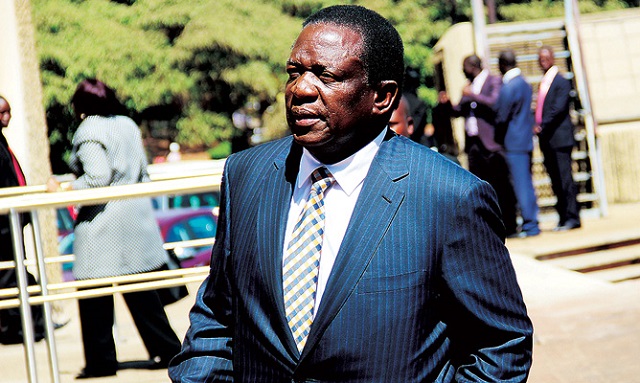Zim leaves indelible mark in Switzerland

Oliver Kazunga, Acting Business Editor
ZIMBABWE has left an indelible mark at the World Economic Forum (WEF) in Davos, Switzerland and indications are that the country will soon witness an increased flow of foreign direct investment from across the globe, economists said yesterday.
President Emmerson Mnangagwa made his maiden appearance at the 48th WEF that ends today.
President Mnangagwa is accompanied by a delegation comprising Cabinet Ministers, senior Government officials and private sector representatives.
The global business forum gave the President an opportunity to interact and explain to top-notch investors that Zimbabwe is open for business in different sectors of the economy.
On his departure on Monday morning, the President said more than 60 heads of State and Government and international news organisations had requested to meet him on the sidelines of Davos meetings.
Zimbabwe had over the years been characterised by low exports, failure to attract foreign direct investment, closure of most manufacturing companies and liquidity constraints and most of these challenges were as a result of its isolation.
In separate interview yesterday, economic analysts said through the interactions that President Mnangagwa has had with the world’s first-class investors, most of them were now very clear of the Government’s poistion regarding foreign investment.
Dr Mugano said: “If you have been following events in Davos, the President was clear on the Government’s policy position and this is in line with what he said in his inaugural speech last year.
“He has spoken strongly about corruption, declaration of assets by senior Government officials among others during his inaugural which message he took to Davos.”
From an economic point of view, the investors are expected to take Zimbabwe seriously given the policy consistency on a number of issues that have been discouraging foreign investors to invest in the country.
“What investors need before they invest is policy certainty and in the case of Zimbabwe under the new economic order and political dispensation, you can see certainty from the consistency,” said Dr Mugano.
He said measures have been put in place to fight corruption and recently Government asked Government ministers, senior civil servants, those working for state enterprises and councils to declare their assets.
Dr Mugano said Zimbabwe has made an impact at the WEF adding that the spin-offs have already started showing as inquiries about investments were coming through from investors in different sectors.
“The President has said there are two categories of investors that have expressed willingness to invest in Zimbabwe; there are those who want to come in before elections and those that are adopting a “wait-and-see” attitude as they want to see the outcome of the elections. “But we are saying, investors who know business, this is the right time to come in and not to wait for the outcome of elections,” he said.
President Mnangagwa has announced that Zimbabwe would hold elections before July.
Another economic analyst, Ms Wendy Mpofu said over the years, the country through the Zimbabwe Investment Authority (ZIA) approved a number of projects that were yet to take off and probably with the changed environment some of them will be implemented soon.
“Zimbabwe has really made an impact in Davos with regards to attracting FDIs. The President took time to explain Government policy position regarding investment, measures being taken to fight graft and we have no doubt that most investors now realise that Zimbabwe is ready for investment,” she said.
An economist Mr Peter Mhaka said Zimbabwe made a significant impact at the WEF and it was important for the Government to ride on the Davos impact to ensure there was speedy economic recovery.
A positive change in foreign investment inflows would immediately help deal with the liquidity crisis that has resulted in shortage of foreign currency, high interest rates and the high cost of capital. — @okazunga.












Comments